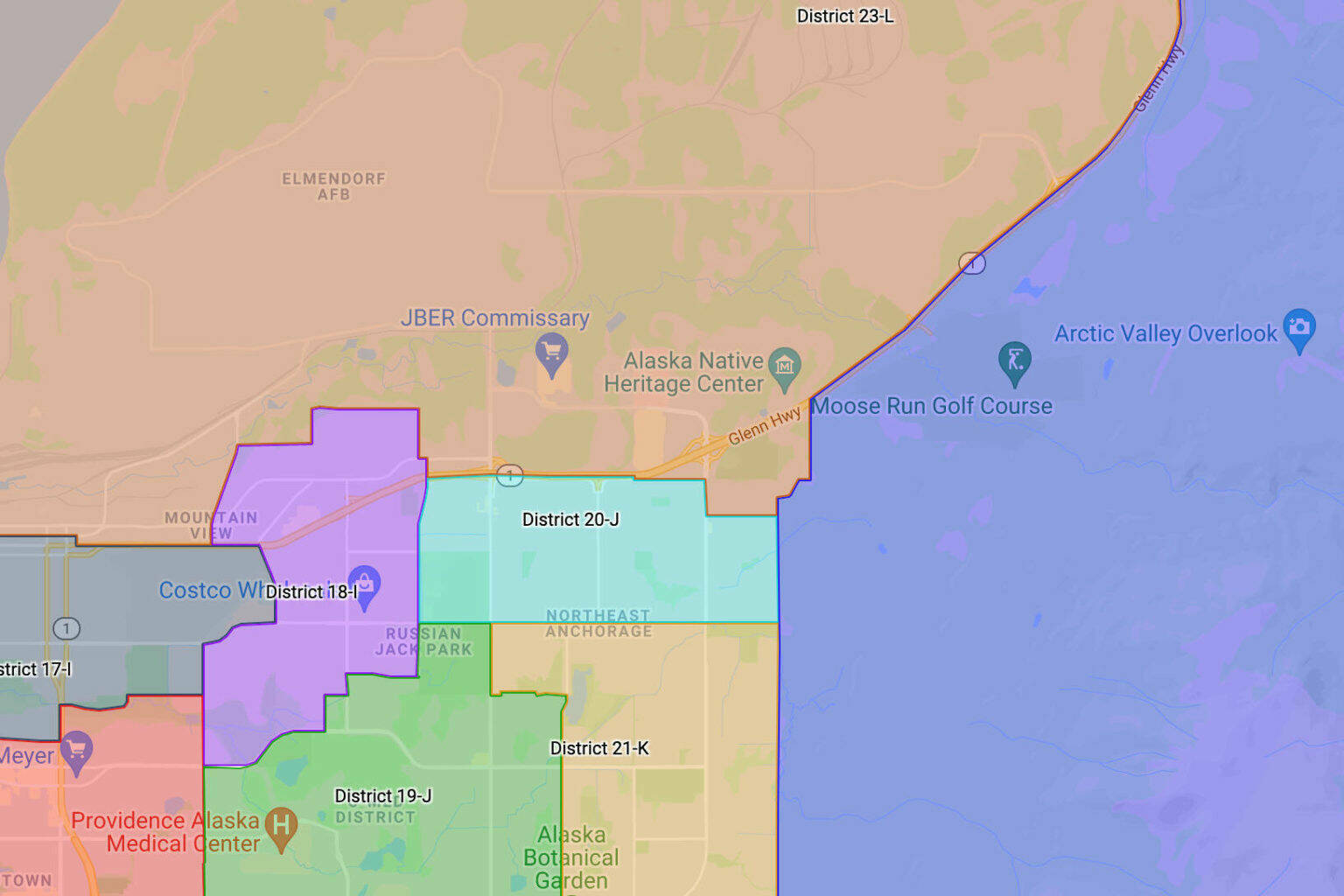The Alaska Supreme Court ruled Friday the Alaska Redistricting Board committed unconstitutional political gerrymandering in the pairing of electoral districts in Anchorage.
The case combined four different lawsuits against the Redistricting Board from residents of East Anchorage; the City of Skagway; the Matanuska-Susitna Borough and the City of Valdez and Calista Corp., an Alaska Native corporation.
In February, Anchorage Superior Court Judge Thomas Matthews ruled in favor of the Anchorage residents and the city of Skagway but dismissed the other two suits. The Court upheld most of the findings of Matthews’ findings but reversed some of the court’s orders based on different findings.
The board came under fire in November for its decision to pair an Alaska House of Representatives district in East Anchorage with an adjoining district in nearby Eagle River for a single Senate district. The districts are contiguous, but the boundaries touch only in an undeveloped area and plaintiffs were able to successfully argue the two areas are not socially integrated.
“We AFFIRM the superior court’s determination that the Board’s Senate K pairing of house districts constituted an unconstitutional political gerrymander violating equal protection under the Alaska Constitution,” the court wrote. “We therefore AFFIRM the superior court’s remand to the Board to correct the constitutional error.”
The Supreme Court upheld Matthews ruling the board violated the state constitution’s equal protection clause and sought to unfairly elevate the electoral power of Eagle River.
[New medically assisted treatment clinic opens]
The court upheld Matthews decision to dismiss claims from the Matanuska-Susitna Borough and City of Valdez with the exception of what the court refers to as, “the Cantwell Appendage.”
“The Cantwell Appendage renders House District 36 noncompact without adequate justification,” the court wrote.
In Skagway, the Supreme Court reversed an order from the lower court requiring further proceedings based on what Matthews called a “hard look” analysis.
“There is no constitutional infirmity with House Districts 3 and 4 and no need for further work by the Board,” the court wrote, referring to the districts in Skagway.
The Supreme Court sent the cases back to the lower court to order to Board into compliance with the ruling. The Supreme Court noted in their ruling that in the East Anchorage case, no issues were raised with the drawing of House districts only with the pairing of Senate District K.
Peter Torkelson, executive director for the Alaska Redistricting Board, did not immediately respond to request for comment.
The courts had heard the case on an accelerated timeline to accommodate for the upcoming election. Without set legislative districts, many Alaska lawmakers are not yet sure which district they’ll be in, and have held off on officially filing for election. The deadline for candidate registration is June 1.
• Contact reporter Peter Segall at psegall@juneauempire.com. Follow him on Twitter at @SegallJnuEmpire.

